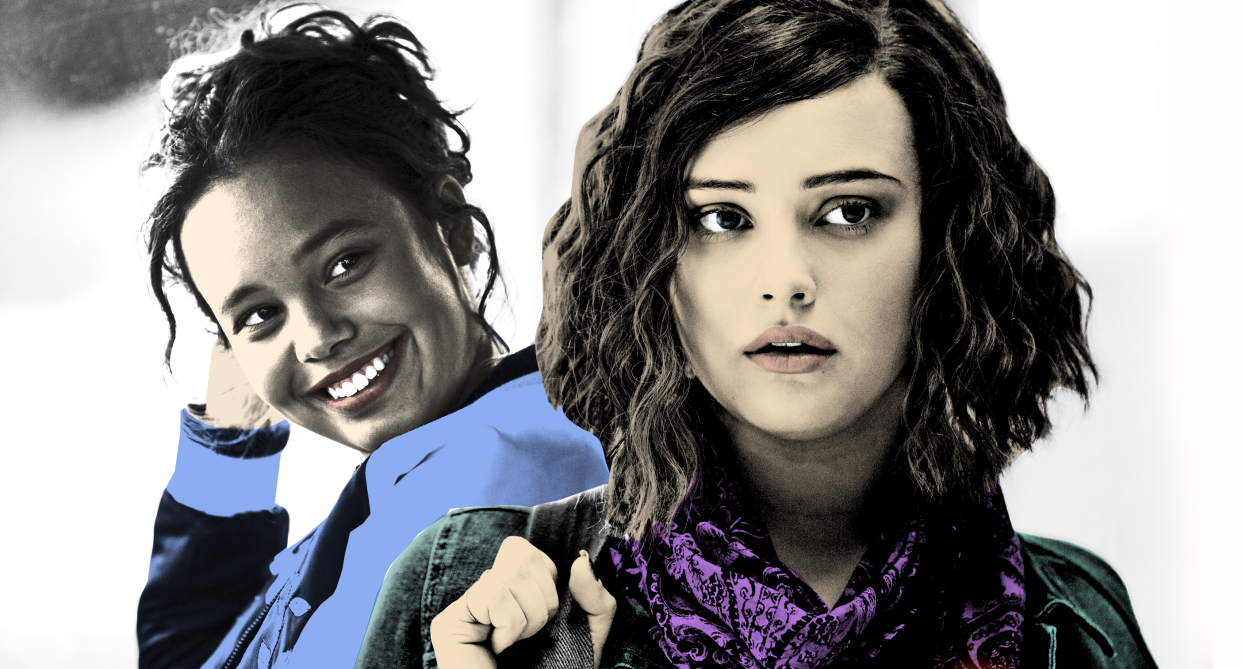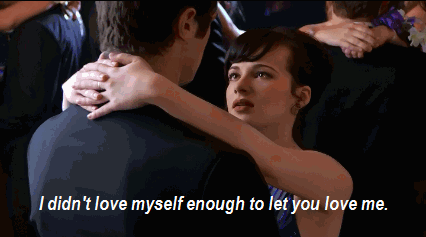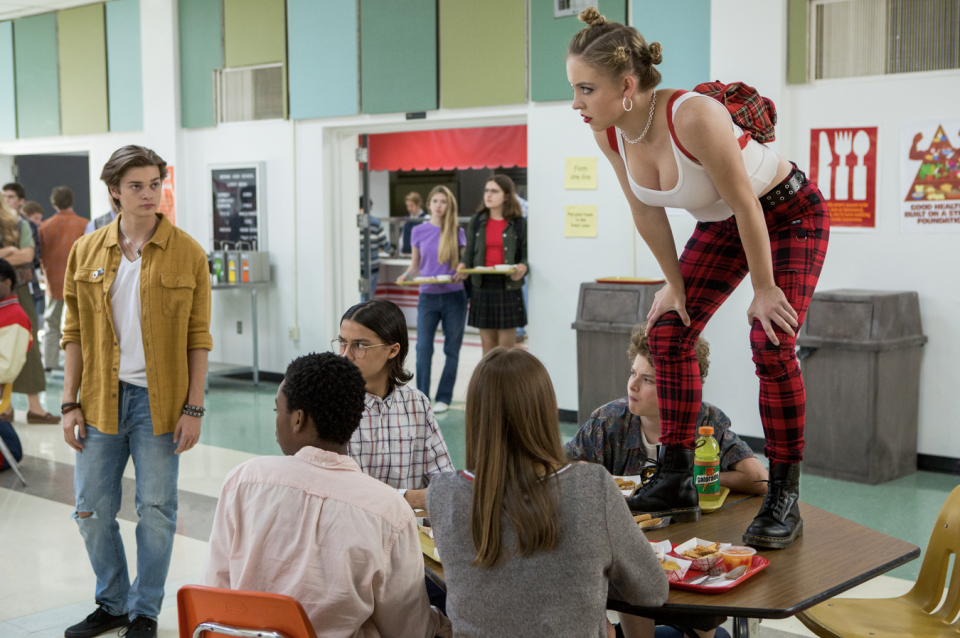20 of TV's top showrunners reveal the storylines they're most proud of

Before Linda Schuyler became the creator of the iconic Degrassi franchise, she spent eight years in a classroom as a junior high school teacher. On Friday afternoons, she liked to show her students something that would get them talking. One day she screened “The Summer We Moved to Elm Street,” a 1968 episode from the National Film Board of Canada about a 9-year-old girl whose family has moved because her father is an alcoholic and can’t hold a job. “It really got quite a lively discussion started afterward,” Schuyler says, “but one of the most poignant things about that discussion was one of the little girls in my class was talking about that girl in the show — ‘that girl.’ And at some point, she stopped talking about it in the third person and started talking about it in the first person. I realized that it had touched a real nerve with her, and we were conversing about the fact that her father was an alcoholic. As a teacher, I went on to take the necessary steps, but as a storyteller, I was really struck by the power that a little 20-minute show had to unleash discussion and feelings that my kids otherwise wouldn’t have an opportunity to explore.”
Those kinds of conversations continue today, which is why we asked showrunners participating in our Why Teen TV Matters series to tell us the storyline they’re proudest of in their series — for its intent or impact. Some people, like Buffy the Vampire Slayer creator Joss Whedon, gave us two.
“‘Intent’ goes to ‘Earshot,’ for being ABOUT other people’s perspectives,” he wrote, choosing the Season 3 episode, written by Jane Espenson, in which Buffy (Sarah Michelle Gellar) can hear people’s thoughts and believes she has to stop classmate Jonathan (Danny Strong) from committing a school shooting.
Watch a scene from the ‘Buffy the Vampire Slayer’ episode “Earshot.”
For “impact,” he picked the romantic relationship between Willow (Alyson Hannigan) and Tara (Amber Benson). “I wasn’t trying to help people; I just wanted to put normal behavior I’d observed onscreen (and find a worthy followup to Oz),” he insisted. “I honestly didn’t think it was a big deal. I am not so bright. But I’m a little proud anyway.”
Here are other storylines that remain a source of pride, for the producers of the teen TV/family genres.
Coming out
Peter Paige (Freeform’s The Fosters): “Honestly, there are so many storylines we’ve done on The Fosters that fill me with pride — abuse in the foster system, DACA, same-sex marriage, able-ism, the sex offender registry, addiction and recovery, more — but the one that holds the place closest to my heart is probably Jude’s coming out and first kiss. To put forward so humanly the simple notion that gay adults actually start out as gay kids — and deserve the dignity of seeing their stories told — is the kind of storytelling that drew me to Hollywood in the first place.”
Nahnatchka Khan (ABC’s Fresh Off the Boat): “The coming-out storyline of Nicole (played by Luna Blaise). Her struggle to tell one person (her friend and neighbor Eddie, who used to have a crush on her) and then him becoming a support system for her as she decides to tell her family and essentially come to terms with who she is. Not only do I think this is important because as we all know representation matters, but I love showing how people you least expect can become an ally.”
Josh Schwartz and Stephanie Savage (Hulu’s Marvel’s Runaways): “We became very aware as the season was unfolding just how important Karolina is to a lot of readers of the comic and viewers of the show. Her relationship with Nico was something that remained unrequited in the comic, but we knew we wanted to take it further in the show. We’re very proud of how representative the Runaways are and that some of these characters are an onscreen first in Marvel’s history.”
Mike Royce (Netflix’s One Day at a Time): “Elena’s coming-out arc on One Day at a Time makes me very proud. I’m so happy with how we were able to show a really complete experience with all the bumps and bruises, based on other writers’ experiences and for me, inspired by my daughter coming out basically at the same time we were writing the arc. So many people have expressed to Gloria and me what it meant to them, and whoops I’m crying.”
Gloria Calderon Kellett (Netflix’s One Day at a Time): “What Mike said and now I’m also crying.”
Sexual assualt
Brian Yorkey (Netflix’s 13 Reasons Why): “I think the way our show deals with sexual assault and its devastating impact on young women is something I’m very proud of putting out into the world. Especially heading into our Season 2, as we follow Jessica’s experience as a survivor of sexual assault — it is a seasons-long if not show-long storyline for her, just as for survivors in the real world it is a lifelong process. We were writing about and talking about sexual assault on our show long before the very welcome #MeToo movement opened, I think, many eyes to just how prevalent sexual assault and sexual harassment are in our world, and we hope that we can continue feeding the conversation — helping to keep the conversation going — especially for teenagers.”
Jennifer Kaytin Robinson (MTV’s Sweet/Vicious): “I am proudest of the seventh episode of Sweet/Vicious entitled ‘Heartbreaker,’ which is the episode where we unpack Jules’s sexual assault and everything that happened after that lead her to become a vigilante. We didn’t want to shy away from exposing the realities of sexual assault, but it was also extremely important to myself and the entire Sweet/Vicious team that we weren’t exploitative in our portrayal of Jules’s experience. This episode was our way of reaching out our hand to survivors and saying we hear you, we see you, and we believe you. The response I get to this day from people about the series as a whole, but this episode in particular … there are no words that can properly describe the amount of love I have in my heart for everyone that was able to feel less alone from watching this episode of television.”
Self-worth
Lauren Iungerich (MTV’s Awkward, Netflix’s On My Block): “Yikes. This is so hard. But if I had to choose I’d say the third season of Awkward and that season’s finale (which was my series finale as showrunner and creator). By the end of the third season, my heroine learned that she could decide to find meaning in her life on her own terms without validation from other people — especially the boy she loved. When that episode aired I had so many people — kids and adults alike — tell me how powerful that message was for them. Doesn’t matter how old you are, the lesson is an important one. We can dictate our own self-worth — we don’t need others to do it.”

Terri Minsky (Disney Channel’s Andi Mack): “The storyline I am most proud of is Andi’s self-awareness about how much she doesn’t enjoy her relationship with Jonah. This was something I was profoundly ignorant of as a teenager. I spent way too much time wondering and agonizing over what someone felt about me. Many times, I just decided for them — they liked me as a friend, but they liked my best friend better. I thought of myself as the second banana. I have even tried to develop a show called Second Banana. You know why it doesn’t work? Nobody wants to be that girl. With Andi Mack, I’ve finally stopped trying to write the teenage girl I was and am now writing the teenage girl I wish I’d been. The scene I’m most proud of is in a first season episode called ‘Were We Ever.’ In it, Andi recognizes that her relationship with Jonah has a severe imbalance; she’s hyperaware of his needs, and he is completely oblivious to hers. She’s so thrilled by his attention she’ll do whatever he asks, but now she sees they’re on a one-way street and she’s over it. The thing is … she tells him. She doesn’t just endure this unsatisfactory arrangement — she gets out of it! I got to put words in Andi’s mouth that I wish I had said decades ago, and I really hope I helped some teenager somewhere to end that crappy relationship which was making them miserable.”
Eileen Heisler (ABC’s The Middle): “I’d say the episode DeAnn [Heline] and I wrote and I directed called ‘The Graduate.’ We won a Humanitas for that one, which I am very proud of. It’s an episode where Sue, who is worried that she made no impact on those around her in high school, finds out that by just being herself, she has actually made an incredible impact. The scene where Sue’s classmates return her high school yearbook and it is filled with inscriptions of how her rather average-seeming life has touched her classmates is one a lot of people related to. I think many people feel invisible in high school, and giving voice to that meant a lot to us.”
Michael Mohan (Netflix’s Everything Sucks!): “I feel so fortunate to have been able to work with this company of immensely talented teen actors — it’s hard to single out one storyline or episode. But in our story, there’s one character named Emaline, beautifully played by Sydney Sweeney. She’s introduced as a bit of a drama queen: One day she’s dressed up like Courtney Love, the next she’s channeling Gwen Stefani. She’s someone who feels validated by demanding attention. And the character’s metamorphosis is absolutely wild to watch because once she has her heart broken, she loses sight of her entire sense of identity, which she just begins to recover in the most surprising of ways. Especially in high school, we all become obsessed with trying to figure out who we are and forcing ourselves to be or act a certain way. And even if we don’t hop on lunchroom tables reciting Shakespeare like Emaline tends to do — her search for a sense of self is something that anyone can relate to.”

Dan Perrault (Netflix’s American Vandal): “I’m proudest of our finale to Season 1. (Spoiler Alert) When he’s finally proven innocent of the vandalism, Dylan enjoys his celebrity status back at school. But his excitement comes crashing down when he finally watches the first few episodes of the documentary and realizes nobody genuinely likes him. They’ve been laughing at him the whole time. Dylan was labeled an idiot and a loser by the school and his peers. And it’s fair to say that this unfair label was one of the major factors in him getting falsely accused of a crime he didn’t commit. In high school, we’re quick to judge people. It’s unfair, especially considering how we’re still learning and figuring ourselves out.”

Representation, in all its form
Michael Braverman (ABC’s Life Goes On): “Without question, I’m most proud of the pilot episode of Life Goes On. My intent, from FADE IN on the first page, was to put on full display the magnificence and humanity of people with Down syndrome. A little-known fact is that Charles, ‘Corky,’ was named and modeled after my nephew Charles — a truly wonderful person. As to the series’ impact, that is for others to judge.”
Heather Wordham (Netflix’s Alexa & Katie): “I am proudest of the overall premise of Alexa & Katie as we portray a teenager who is living with and in the process of surviving leukemia. We had an adult guest actor on one of our early episodes who handed me a letter right after curtain call. In the letter, this actor described his childhood dealing with type 1 diabetes. He said when he watched TV growing up, that a sick kid on a sitcom was the punchline, not the star. He went on to say how happy he was to see a show where a teen character is going through an illness and yet is relatable, likable, and one of the main characters.”
Dreamers
Katie Elmore Mota (Hulu’s East Los High): “I am extremely proud of the wide array of issues we addressed on East Los High, from immigration to sexual and reproductive health to domestic abuse and more. I think the story we told about a young Dreamer named Eddie is particularly important. We are living in a time when issues such as immigration have become so divisive that we have stopped seeing the humanity behind these hot-button topics. So we wanted to tell a story about a Dreamer through the lens of a character that the audience already knew and loved. On East Los High Eddie is a high school student who was born in Mexico but grew up in the U.S. One day on his way to see his mother, the bus he’s on gets searched by immigration. And he gets taken into custody and put in a detention center. The conditions are horrendous, and the abuse the detainees endure makes your skin crawl. Eddie is terrified and ends up suffering severe PTSD as a result.
There are hundreds of thousands of people in our country living in these ‘prisons’ every year, yet Eddie’s story was the first time in the history of U.S. television that showed what detention centers are actually like, and the horrific conditions that people, including children, are put in. The human rights abuses are gross, and things are only getting worse under this administration. Kids like Eddie, refugees, people who know no other home than the United States, are being treated like criminals, and it is heartbreaking. We worked closely with United We Dream to tell that story.
We then wanted to show how communities can come together and take action, so the students of East Los High staged a huge protest to get him out, and it works. It was always really important for us to show the challenges but to also show what people can do, that their voices matter, that even in situations where they feel powerless, coming together and using their voice can make them powerful.
We started writing this storyline in 2015, when little attention had been given to Dreamers in mainstream media, and it aired just months before the 2016 election. Understanding the impact the storyline would have, we worked closely with Voto Latino and United We Dream on Eddie’s story as well as a digital campaign to help drive voter registration and the importance of voting.”
Loss
Julie Plec (the CW’s The Vampire Diaries): “I love writing about loss, and two episodes of the Vampire Diaries that were so important to me were when Elena had to come to terms with the fact that her brother is dead, which was ‘Stand by Me’ back in the third season, and when Caroline has to bury her mother in the sixth season. Those are universal experiences. The mourning period — the grief, the crisis, or the trauma of the moment — is often written away from or happens off-screen, and to be able to expose that like Joss [Whedon] did with ‘The Body’ back in the day [on Buffy], expose the mechanics about that kind of loss and what happens thereafter, was really important to me. I’m really proud of those two episodes for their emotional weight.”
Friendship
I. Marlene King (Freeform’s Pretty Little Liars): “At its core, Pretty Little Liars was about the PLL’s unconditional friendship. We were never the show that pitted women against one another. And the girls never fought over their dating partners. So when Spencer and Caleb started to have romantic feelings for each other, even though Haleb had been over for a long time, it was important for me to make sure we handled the storyline in a way that represented the show’s core value. Spencer refused to move forward with Caleb until she received Hanna’s permission. The intention of her decision was to show friends taking care of friends, which is what PLL was all about.”
Innocence
Adam F. Goldberg (ABC’s The Goldbergs): “Season 4, I introduced the romance between Adam and Jackie Geary, an awkward theater kid played by Rowan Blanchard. They have all the typical teen drama, but it’s all filtered through geeky pop culture issues. I’ve found such immense joy writing this innocent teen storyline, especially because it’s all real. Jackie and I are still friends to this day, and it’s been so amazing revisiting that innocent time of my life where our biggest argument was about Star Trek versus Star Wars.”
Read more “Why Teen TV Matters” from Yahoo Entertainment:

